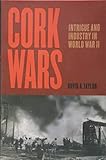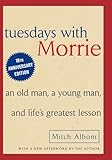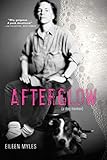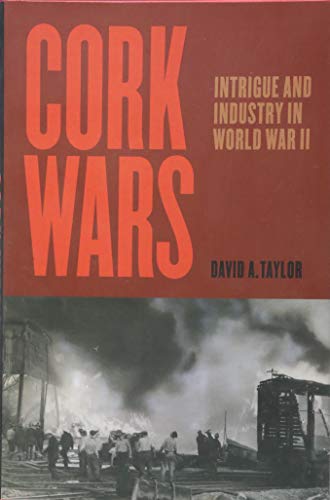In early March of 2019, I spoke with my friend Frank on the phone for only the second time in months. He had recently moved into a senior center in Maryland, and he was depressed. His younger daughter had died of cancer. I had written, called, and left messages for him, not realizing how restricted communications can be with someone in a senior facility when you’re not related. Access is often limited.
It was the longest I’d gone without seeing or talking with Frank for more than five years.
That day he called. It was after dinner on a Saturday. He was trying to get better, he said. He was focused on it. “I wanted to call because I consider you like family,” he said. “I told my daughter if something should happen to me—”
I started to interrupt. But he was firm: “Face it, I’m 92 years old.”
 He told me a story. He said one of the staff at Greenfield Senior Living had found “the book” in Frank’s room. By the book, he meant my book, Cork Wars, which had just come out, about Frank and a few others during World War II. Frank had been keeping his copy to himself—he didn’t want to draw attention. “But Trish found it and asked if she could read it,” he said. “She was surprised” that he was in a book.
He told me a story. He said one of the staff at Greenfield Senior Living had found “the book” in Frank’s room. By the book, he meant my book, Cork Wars, which had just come out, about Frank and a few others during World War II. Frank had been keeping his copy to himself—he didn’t want to draw attention. “But Trish found it and asked if she could read it,” he said. “She was surprised” that he was in a book.
Later, Trish told him she and another staffer wanted to read the book aloud to all the residents over a few days. Frank grudgingly let her. But he wanted to curate it: He marked the chapters that related to him and said those were the ones they should read. Of course it felt good to hear him say this. Besides massaging my author’s pride, it told me Frank was feeling better.
First Interview
It was November 2013 when I first visited Frank at his home in east Baltimore. I was just going to scout a potential source for my book about corporate espionage in WWII, immigrants, and the different ways families got entangled in war, from the factory floor to the CEO suite. I wanted to interview Frank about the company where he had worked, Crown Cork and Seal, and what he’d seen during WWII.
I walked up to the front door of the bungalow on suburban 47th Street, a blue-collar neighborhood. I gave even odds that we wouldn’t click at all. When I called Frank to set up the interview, what struck me was his voice: cement poured through a coarse sieve, a fibrous Baltimore baritone with grit and street. Which is how he sounded when he welcomed me inside his house. I imagined myself through his eyes: a privileged, college-educated guy who hadn’t had to work as hard as he had. But he invited me to have a seat in an overstuffed chair and we talked. We meandered around several topics, and in that first conversation I wasn’t sure if he was providing much I could use in my writing.
One of my early questions, about his first factory job as a drill operator at a war factory, immediately made him defensive. I asked how old he had been. “I was working with a permit,” he said. “I was 15 years old.”
He handed me a slim folder documenting the milestones of his career at Crown Cork and his pay history. “Look through it and tell me what you want to know,” he said. “I don’t want to get you all confused.”
Invasion of Privacy
I got a little confused about timelines when Frank spoke, but his story felt important to the story I wanted to tell. I wasn’t sure how, at first, but over the course of more than a dozen conversations, we focused on his teenage years during the war, growing up in an Italian-American family, and being part of the war effort. We’d sit in the two living room chairs facing the front door, and he’d give me an hour or so of his time.
My questions got more personal: How was it when he had to leave high school to get a job after his father died? How did it feel getting drafted when his three older brothers were already in the army? I asked where his father was buried, and how his mother responded when she was left to take care of the family.
We talked about Frank’s fears of shipping out to the Pacific. How did he feel, landing in the Philippines? What did he think then about the impending invasion of Japan? What did he see, coming back to unemployment in America? How did he propose to his girlfriend? How much did they spend on the wedding?
These conversations happened a couple years after my father died. So besides gathering string for my work-in-progress, I was asking questions I couldn’t ask my father. I enjoyed talking with someone from that generation. Frank was almost 90, almost my father’s age.
The Words That Bind
 There’s a long tradition of interview relationships. Truman Capote famously befriended Perry Smith in prison and used that rapport to craft the most chilling details of In Cold Blood. “I thought he was a very nice gentleman,” Smith told Capote about Herb Clutter. “Soft-spoken. I thought so right up to the moment I cut his throat.”
There’s a long tradition of interview relationships. Truman Capote famously befriended Perry Smith in prison and used that rapport to craft the most chilling details of In Cold Blood. “I thought he was a very nice gentleman,” Smith told Capote about Herb Clutter. “Soft-spoken. I thought so right up to the moment I cut his throat.”
 At the other end of the emotional spectrum is Mitch Albom, who already knew the man whose conversations would become Tuesdays with Morrie (first a memoir, then a film, then Broadway!). Morrie Schwartz had been Albom’s sociology professor. Albom framed the book as his last class, a one-person tutorial on the meaning of life. “The son of poor Russian immigrants, Morrie was blessed with a crescent smile that crinkled his eyes and made everyone feel like family,” Albom wrote after seeing him again. These visits yielded dialogue but also caregiving lessons as Albom accompanied Morrie to the toilet and pounded his back at the direction of a physical therapist to loosen congestion. But Albom’s journey was into his own emotional core. From a college grad who mocked Schwartz’s sentiment, their conversations moved the author to epitomize that sentimentality, ending with a vision of his departed friend amid “stars and moons and planets, I see him dancing in the sky.”
At the other end of the emotional spectrum is Mitch Albom, who already knew the man whose conversations would become Tuesdays with Morrie (first a memoir, then a film, then Broadway!). Morrie Schwartz had been Albom’s sociology professor. Albom framed the book as his last class, a one-person tutorial on the meaning of life. “The son of poor Russian immigrants, Morrie was blessed with a crescent smile that crinkled his eyes and made everyone feel like family,” Albom wrote after seeing him again. These visits yielded dialogue but also caregiving lessons as Albom accompanied Morrie to the toilet and pounded his back at the direction of a physical therapist to loosen congestion. But Albom’s journey was into his own emotional core. From a college grad who mocked Schwartz’s sentiment, their conversations moved the author to epitomize that sentimentality, ending with a vision of his departed friend amid “stars and moons and planets, I see him dancing in the sky.”
 Polymaths Eileen Myles and Jill Soloway engaged in a double fantasy version when they interviewed each other after—or rather, during—the dissolution of their relationship. Myles’s memoir Afterglow was in bookstores when they appeared together at the Hammer Museum in October 2016. To watch the video is to witness a fascinating performance of disclosure. Soloway frames the conversation: “We have things in our relationship that we haven’t quite worked out yet. And we thought we’d just process our relationship onstage here for you guys,” she says, adding, “We want to invite audience participation throughout.”
Polymaths Eileen Myles and Jill Soloway engaged in a double fantasy version when they interviewed each other after—or rather, during—the dissolution of their relationship. Myles’s memoir Afterglow was in bookstores when they appeared together at the Hammer Museum in October 2016. To watch the video is to witness a fascinating performance of disclosure. Soloway frames the conversation: “We have things in our relationship that we haven’t quite worked out yet. And we thought we’d just process our relationship onstage here for you guys,” she says, adding, “We want to invite audience participation throughout.”
 “We met very much like this. We met onstage,” Myles observes. “Being in each other’s work is a funny kind of exposure for a relationship.” Later Soloway’s 2018 memoir, She Wants It, talked more about Myles and the relationship.
“We met very much like this. We met onstage,” Myles observes. “Being in each other’s work is a funny kind of exposure for a relationship.” Later Soloway’s 2018 memoir, She Wants It, talked more about Myles and the relationship.
I had no intention of complications as I returned again and again to visit Frank. I had a book to write and was simply grateful he made time to talk. I was also interviewing two other families about their experiences of life during wartime.
Escalator to the Galleys
Frank and I talked about ways to change our routine: going to the racetrack with his Pimlico group, or heading out for lunch at one of his favorites. But his schedule was as jammed as mine. He and his friends in the Pimlico group already had a regular outing. By the weekend, sitting and talking in his living room was usually his preferred option.
I would get there in the afternoon, having gone through my notes of our previous talk and identified gaps I meant to flesh out. The Eastern Avenue exit from the highway just after the tunnel, past the harbor, became a familiar turn.
Over time, Frank shared more personal memories and frustrations. He recalled the indignities of government suspicion of Italian Americans, and officials taking away his father’s shortwave radio as a security risk. He wrestled with how difficult it was to express some things from that time.
“How can I instill that I have seen death, that I’ve seen poverty, that I’ve seen sadness, that I’ve seen people that, if you have any compassion, it would break your heart?” he asks. “How do I relate that to someone who didn’t see it?”
His tangents added a dimension to my book. I realized it was important to include more about the wartime restrictions on immigrant families from different backgrounds labeled “enemy aliens.”
The book finally came together and I sent the manuscript to my editor, but I kept finding reasons to visit Frank. Did he still have the letters he and Irma exchanged during the war when he was in the Pacific? Did he have photos of the two of them during those years? And what did his grandson do for the Patent Office anyway?
This was how our relationship shifted: through Frank’s endless patience with my questions and through his sense of being heard. Finally in late 2017, I had a printout of the chapters that involved him, and brought the sheaf of pages for him to peruse.
That time, he made me lunch. Gnocchi with red sauce—he pulled out the jar, so I’d know what to look for when I wanted to make it myself. We enjoyed it at his kitchen table, and he sent some home for my wife. Frank’s independence at 91 staggered me. He was still driving himself around, volunteering at his local delegate’s office, and handling calls from constituents.
I was conscious of the transition in our exchanges from informant to writer to something else. The book launch was a few months away. Frank said he would join some events including one at the Baltimore Museum of Industry.
He was facing the annoyances of age. But then one hit him from out of the blue: His younger daughter got a cancer diagnosis. She was fighting it, and he was visiting her every week.
In April 2018, I called him several times and left a voicemail after his cheeky prompt (“You’ve reached the voicemail of Frankie Dee. Please leave a message.”). Unusually for him, I didn’t hear back. So that weekend I went to check on him. It was a glorious spring afternoon and I walked up to his door and rang the bell. I waited. Eventually the next-door neighbor came out and told me that Frank had been taken to the hospital a few days before. He’d been depressed since his daughter died. We both hoped Frank would be home after a few weeks’ rest.
On the highway back to D.C., I passed 18-wheelers as Courtney Barnett’s “Sunday Roast” expressed my hopes for Frank: Keep on keepin’ on. You’re not alone. I’ve heard your stories.
By late summer, the family saw he would not be able to stay in his house alone. I was still talking about book events we could do together, where Frank could tell his story like we’d talked about. I invited Frank and his daughter to a launch event in December. But I was losing direct touch with him.
Back in Dialogue
Rafael Alvarez, the writer who had introduced us, messaged me in January: “i just visited with frank at the nursing home. very sad.” Rafael said. I realized Frank had swayed at least two of us scribblers to keep up with him long after filing our stories. There were probably more.
I phoned Frank a few times at the center, and caught him once after the 5:30 dinner. It was good to hear his voice, but he sounded down. Still, he stayed on the line and by the time we ended the call he was laughing.
When he called me in early March, he sounded somewhat stronger. He started chatting about his surroundings and spoke about why he was depressed. He wanted to inform me, as if for the first time and he was breaking the news gently, that his younger daughter had died. It was really hard on his older daughter, he said.
Late Fragment
He’d become sort of a star at Greenfield. There are so many women and so few men. “A few weeks ago they had elections for the King and Queen of Valentines,” he said. He got worried. There was no way he would be King of Valentines, he said. So he filled out five or six ballots with other men’s names and put them in the ballot box. Still, it looked like the staff was intent on their plan so he—“and my daughter told me I shouldn’t do this”—pried open the box and grabbed out half a dozen ballots with his name on it.
It didn’t matter. He still ended up King of Valentines at Greenfield.
By the end of his story we were both laughing. Maybe, it seemed, he would have some more days that were OK.
But, as we ended the call, he was clear: He would reach out and call me when he felt like it. So I held back. I let go of our fantasy of having him join the event at the museum, which would highlight his part of the book and his career in Baltimore industry. But I wanted to visit him at Greenfield.
The Longest Odds
A few weeks after our phone call, I shared his story at the Museum of Industry. It was a crisp evening and the last sunlight off the harbor was shimmering. The only missing element was Frank.
Later I made notes to myself to call him. I knew I had said I’d wait for him to call, but I also thought the calls helped him. So I called on Saturday evening, May 4. It was Kentucky Derby day and I figured we’d have something to say. He did. He already knew the outcome and was aware that it was the longest-odds win in the Derby’s history. He said to tell my wife hello, and to be sure to pick up a jar of gnocchi from the store, reminding me of the brand name. “Sure, Frank,” I said. “I’ll do it.”
Two weeks later I heard from Frank’s daughter that he had passed away that Sunday. “It was unexpected,” she said, “He never got over my sister’s passing,” she said. She thanked me for staying in touch. “I know he enjoyed your calls.”
Probably not as much as I did. But the main body of our relationship remained in the book, and for that I’m grateful. Frank would say life is not all sweetness and light. Then he’d make a joke.
Image source: Hans




